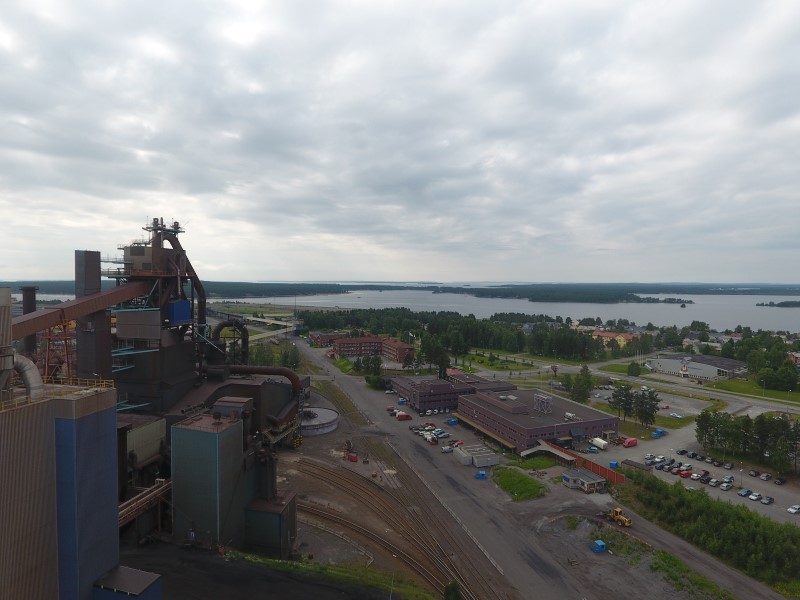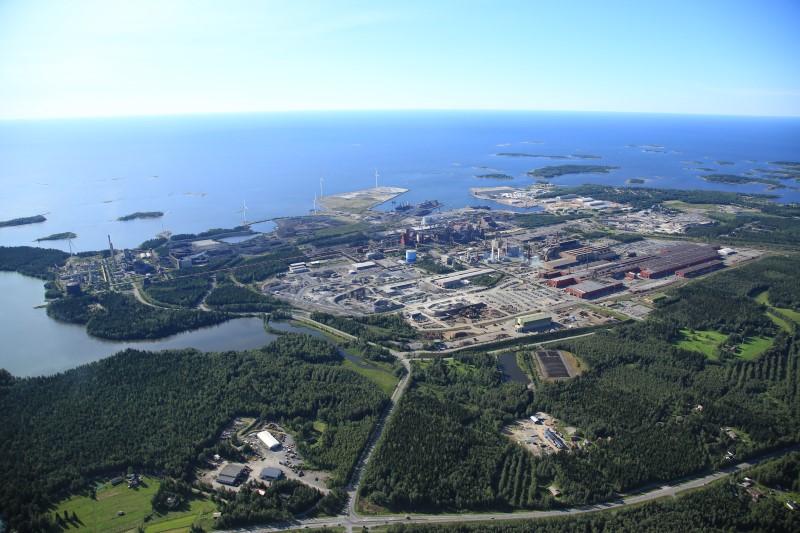The decision – announced on January 28th, 2022 – was taken against the background of strongly growing demand for fossil-free steel. The plan is to replace the existing system with new mini-mill technology, which will result in a broader product program and improved cost position. The ambition is to largely eliminate carbon dioxide emissions around 2030, 15 years earlier than previously announced. However, to achieve this ambition, the necessary infrastructure, access to fossil-free electricity in particular, must be in place in time.
“Our customers are demanding fossil-free products from SSAB. We can solve the technical challenges and we have a strong financial position. If we can resolve the question of power supply and environmental permits together with society, then we can make the transition 15 years earlier than the plan communicated previously. We can finance the plan through our own cash flow and resulting in a broader product program and improved cost position,” says Martin Lindqvist, President and CEO of SSAB.
Eight million tonnes
SSAB is leading the green transition in the steel industry through the unique HYBRIT initiative, which SSAB is driving forward together with its partners, and the conversion at Oxelösund, which has already been planned. This latest decision means a transformation of SSAB’s other Nordic production sites during the next ten years, considerably faster than the earlier objective of 2045. The first step will be to develop a more detailed transformation plan for each production site. The order of site transformation will depend, among other things, on the availability of the necessary infrastructure, in particular access to competitive electricity. The plan means all SSAB’s emissions will be largely eliminated at the beginning of the next decade, which will mean an emission reduction of more than 8 million tonnes of carbon dioxide a year, compared with present levels. The investment will enable a reduction of around 10% in Sweden’s total carbon dioxide emissions and around 7% in Finland’s.
The intention is to transform SSAB’s Nordic production system based on the current business strategy. The new system will mean increased capacity for premium products, an improved cost position and fossil-free production. Under the new plan, Luleå and Raahe will be transformed into cost-effective mini-mills, with electric arc furnaces and rolling mills. Borlänge and Hämeenlinna will be further developed in line with the new production processes.
Strategic investments in the new strip production system are expected to total approximately SEK 45 billion during 2022-2030. At the same time, this will eliminate the need to invest in existing systems with blast furnaces, steel plants and rolling mills.
The investment will result in a broader offering of SSAB’s premium products, advanced high-strength steel (AHSS), and quenched and tempered steel (Q&T). An increased dimensional program with improved tolerances will broaden the offering to the vehicle industry, among others. The plan has a number of advantages:
- A broader product program in special steels and a better product mix with fossil-free products.
- Lower costs through, among other things, more efficient production and significantly shorter lead times.
- The elimination of carbon dioxide emission costs, as the blast furnaces are decommissioned.
- Increased flexibility to respond to business fluctuations once the transformation has been completed.
Financing through cash flow
SSAB has a strong financial position and the assessment is that the company can finance the strategic investment program through its own cash flow. The permit processes for Luleå and Raahe will start during 2022.
“We now have a unique opportunity in Sweden and Finland. An accelerated fast transformation of the industry will allow us to create new fossil-free value chains and secure jobs in Nordic industry for the future. We will increase SSAB’s earnings, while rapidly reducing carbon dioxide emissions and making a significant contribution to the climate and the transition of society,” says Martin Lindqvist.


